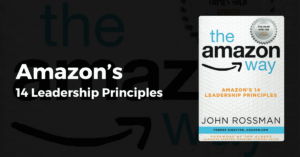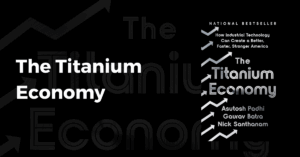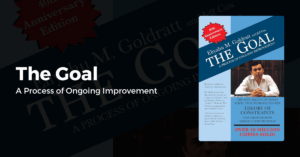Brief Summary
Eliya – Mastering Simplicity is a business fable that articulates a universal truth: complexity is often self-inflicted, while simplicity—grounded in common sense—is the ultimate sophistication. Through a narrative centered on a young professional, Pavithra, and her wise grandmother (“Paatti” – an affectionate term for Grandmother in the Tamil language), Dose introduces the “Eliya Principle”.
“Eliya” means “simple” or “easy” in Tamil, one of the world’s oldest actively spoken languages, with a rich literary heritage spanning over two millennia. Tamil is spoken by Tamils primarily in Tamil Nadu (India), Sri Lanka, Malaysia, Singapore, Mauritius, and other global diaspora communities.
The book explores how applying this principle across manufacturing, logistics, quality, leadership, and personal development leads to profound organizational transformation.
The core message: By challenging the status quo, removing bureaucratic noise, and empowering employees to act with autonomy and responsibility, businesses can improve productivity, engagement, and resilience.
Here’s a distilled set of insights and key takeaways from Eliya – Mastering Simplicity
Core Philosophy: Simplicity as Intelligence
- Eliya is rooted in the Tamil word for “simple” or “easy,” but Dose redefines simplicity as a process of clarity, not lack of sophistication.
- Simplicity = common sense + intuition + shared experience. If you can’t explain it to a child or a grandparent, you haven’t truly understood it.
Operational Excellence Through Flow
- Emphasizes flow-oriented layouts in production, not isolated stations. Rearranging machines and processes for tactile efficiency delivers major gains.
- Real productivity breakthroughs stem from questioning physical layouts using low-fidelity simulations (like cardboard models) before digital design.
The Metrics That Matter
- Advocates for focusing on three universal KPIs: Quality, Cost, and Time. Everything else is noise.
- Suggests a dual-tier target system:
- Minimum targets: +10% from baseline (with bonuses)
- Breakthrough targets: +30–50% stretch goals to stimulate creative problem-solving and collective challenge
Leadership as a Support System
- Turns traditional hierarchies upside down. Value creators (shopfloor, customer-facing roles) are the most important; planners and managers are enablers.
- Promotes autonomous, collective action—decision-making should move downward in the organization to foster ownership and resilience.
Change Management via Evolution, Not Revolution
- Warns against top-down implementation of well-intended strategies—it leads to resistance.
- Instead, change should arise organically from shared understanding and principles. Simplification must be felt, not imposed.
Sourcing Strategy: Rethinking ‘Make vs. Buy’
- Critiques outsourcing for flexibility when suppliers work exclusively for one company, argues that internal production might be more agile and cost-efficient.
- Calls for reevaluation of “core competencies” and questions who truly benefits from external sourcing.
Simple Systems Enable Complex Success
- Dose’s vision of quality management emphasizes error-proofing before inspection, clear work standards, and employee-driven innovation.
- Even enterprise IT and accounting systems benefit from simplification, like card-based production tracking aligned with just-in-time principles.
Futureproofing Through Pioneering
- Differentiates between “settlers” who analyze trends and “pioneers” who create them.
- Encourages companies to shift from reactive analytics to proactive innovation—change the rules, rather than just playing the game better.
Human-Centered Culture
- Emotional intelligence runs through the narrative. Characters (especially Paatti, the grandmother) serve as metaphors for trust, intuition, and teaching through lived experience.
Dose insists that the real challenge isn’t skill, but attitude, personality, and the courage to question the status quo.
Applications for Manufacturers & Distributors
- Perfect for companies undergoing digital transformation, it argues that you must simplify before automating.
- Promotes lean life principles, extending operational simplicity to leadership, logistics, product development, and personal growth.
Final Words: Where Complexity Ends and Clarity Begins
For business leaders in manufacturing and distribution, Eliya isn’t just philosophy—it’s practicality with heart. If you want to build organizations that are agile, intuitive, and human-centric, this book could be your most unexpected yet valuable tool.
Author Background:
Thomas Dose is the Managing Director of BMW Group Plant Chennai, India, with over three decades of global leadership experience in manufacturing and lean transformation. Dose’s professional expertise in operational excellence, combined with his experience in India, uniquely qualifies him to explore the cultural and strategic dimensions of simplicity. This lends credibility to the “Eliya Principle”—a concept rooted in Tamil philosophy yet globally relevant in business transformation. Professional expertise in operational excellence, combined with his lived experience in India, uniquely qualifies him to explore the cultural and strategic dimensions of simplicity. This lends credibility to the “Eliya Principle”—a concept rooted in Tamil philosophy yet globally relevant in business transformation.

About the Curator:
Tamizh Selvan Dinakaran has over 25 years of experience helping businesses grow through digital marketing, particularly in the distribution and manufacturing sectors. He currently leads customer education at DCKAP, where he creates programs designed to help customers succeed in deriving value from DCKAP’s products. Previously, as DCKAP’s Director of Marketing, he focused on increasing brand awareness and generating leads through effective content marketing. Tamizh specializes in B2B content marketing, marketing operations, and customer success.
Read More Book Reviews
ERP Integration made simple for Manufacturers & Distributors.
Transform your commerce journey by creating an integrated experience for employees and customers.




